Are you looking to consistently nurture leads and stay top-of-mind with your sphere of influence? Real estate drip campaigns are the answer. In this article, I’ll cover everything you need to know about drip campaigns—from what they are and how they work to tips for creating effective campaigns that convert. I’ll also provide some sample drip campaign emails you can steal for your business. By the end, this article should equip you with the tools to nurture relationships and produce a steady stream of clients. You’re welcome!
What Are Real Estate Email Drip Campaigns?
So, you’ve got a lead who’s not quite ready to buy or sell, but you know they’ve got potential. What do you do? If you’re like many agents, you could just let them get lost in the void of your database. Or you could nurture that lead with a real estate drip campaign.

For example, you might create a drip campaign for potential sellers that includes:
- An introduction to your services and unique selling proposition
- Helpful content like a home valuation guide or staging tips
- Testimonials from satisfied clients
- A solid call to action to schedule a listing consultation
Email drip campaigns are like the slow cooker of email marketing—you set and forget them, but the results are nothing short of delicious. By sending automated emails over time, you can keep your leads warm, establish yourself as a trusted resource, and be the agent they turn to when they’re finally ready to make a move.
The Benefits of Drip Campaigns in Real Estate
Let’s talk about why you would want to use an email drip campaign. Real estate agents who use drip emails get multiple benefits. Not only are they highly effective—they’re also incredibly efficient. Instead of manually sending out individual emails (ain’t nobody got time for that!), create a sequence of emails once and let it work its magic on autopilot. Plus, with the ability to segment your audience and personalize your messages, your leads will feel like you’re speaking directly to them.
And let’s not forget the return on investment (ROI)! Email marketing has an average ROI of $36 for every $1 spent, and drip campaigns are like email marketing on steroids. They nurture leads over time, like planting and watching a seed grow into a beautiful, bountiful bouquet of commissions.
So, if you’re ready to take your email marketing to the next level and watch your leads blossom into clients, it’s time to dive into the world of real estate drip campaigns.
How to Create a Drip Campaign for Real Estate
Creating your email drip marketing in real estate seems like a monstrous task. But it’s really a lot easier than you think. Start by finding your email templates inside your real estate customer relationship manager (CRM). I used Follow Up Boss, and the image below is what it looked like for me. A button was in the top right corner once I went to the Email Templates tab. Yours may be called something different, like email marketing or drip campaigns. Once you find the correct section, click the button to write your emails.
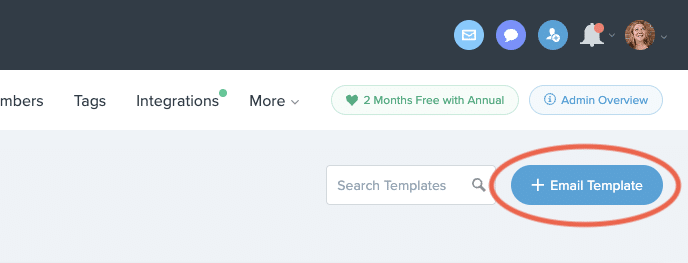
When writing your email sequences, use the emails already in your email marketing section as a starting point. Then, customize them to fit your needs, personality, and desired results—no need to reinvent the wheel. You can also use a little help from ChatGPT to get a basic email sequence template so you’re not starting with a blank page.
📌 Pro Tip
Once you write an email, give it a descriptive title. For example, I had a system where I used my name first (to separate from the other emails already in the system), followed by the sequence and then the email content. It’s much easier to find it if you’ve given it a title that lets you know what’s in the email. I used several of my emails in different campaigns, so I created the emails first. Then, when I built the automation, I could reuse the same emails for different action plans.

For example, I wrote an email for my Relocation Guide. I included a video discussing the Pros & Cons of Living in Crestview, Florida.
This first email was great to include in multiple buyer drip campaigns. I pulled this email into the sequence of all my new buyer campaigns I created, and I only had to write it once. Easy-peezy! I also used that same email as a template to write a similar email for my VA Homebuyer’s Guide that included the same video.
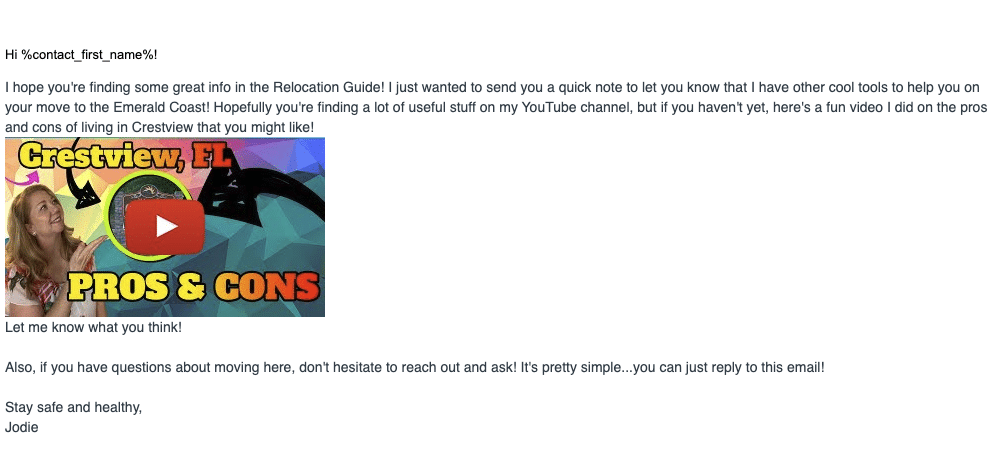
I created multiple emails that I reused in multiple email drip campaigns, like this one I made about why buyers need pre-approval.
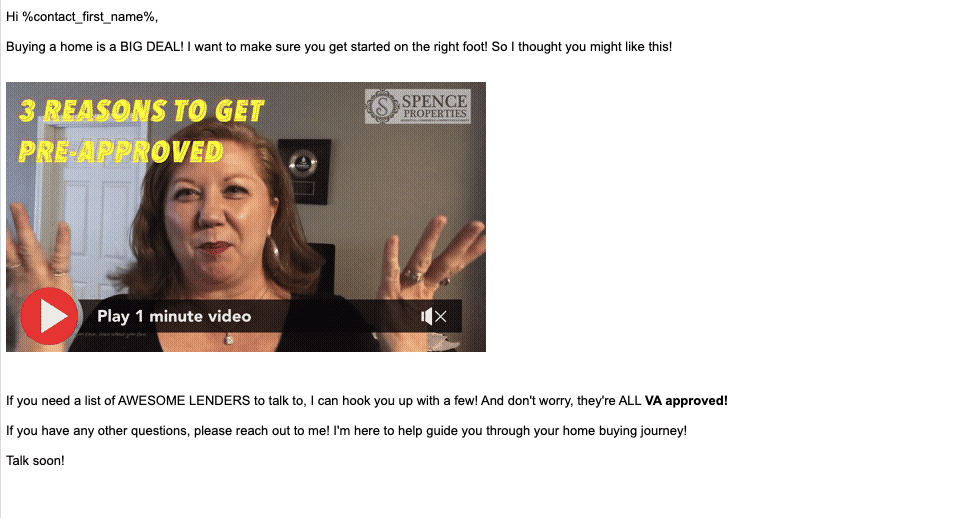
Pro tip: I used video in my drip campaigns a lot! And that was 100% intentional. The best part about using video is I never really had to convert my leads. By the time they were ready to choose a real estate agent, they already knew me. When they contacted me directly and asked me to help them with their move, I never had to convince them I was the right real estate pro for them.
Different Types of Drip Campaigns in Real Estate
Real estate email marketing is designed to match messages with the right people at the right time. So, you’ll need to familiarize yourself with the different types of email sequences you can deploy to help nurture and convert your leads. With the variety of email drip campaigns, you’ll be able to meet each lead exactly where they are in the buying and selling process. Here are several types of real estate drip campaigns you should become familiar with.
The Welcome Sequence
The drip welcome sequence is one of real estate agents’ most essential automated emails. When someone signs up for your email list through your website, a lead magnet, or an open house, it’s crucial to welcome that new prospect and set expectations for what they’ll receive from you.
A good welcome sequence should:
- Introduce yourself and your brand
- Provide value upfront with helpful resources or tips
- Set expectations for email frequency and content
- Include a clear call to action to check out your website or services
Nurture Campaigns
Nurture campaigns are a series of emails designed to guide your leads through the buying or selling process, providing them with the information and support they need at each stage of the funnel. These can typically span an entire year and include as many as 20 or more emails. The great thing about today’s email marketing tools is that you can include emails and text messages to keep things moving forward.
Some examples of nurture campaigns include:
- New leads: Send a welcome series that introduces your brand, shares some helpful resources, and sets expectations for what kinds of emails they’ll receive from you.
- Active buyer leads: Send emails showcasing relevant listings, offering neighborhood guides, and providing tips on financing and home inspections.
- Cold leads: Send a re-engagement series that offers a special incentive, asks for feedback, or simply reminds them of the value you provide.
I wrote many of my marketing emails. But you don’t have to reinvent the wheel. Do what I did—take some of the emails already available and customize them to fit your personality and style.
For example:
Here is an email already preloaded in my customer relationship manager (CRM):

I took this email and customized it by adding my short video to the email. I also added the merge field in the subject line to personalize it for my recipient. Notice I didn’t really change the text of the email—I just added a video and a merge field.
A tiny bit of customization made this email a thousand times more personal and effective. You can use the provided emails as templates and easily create your own sequences. And you don’t have to do everything at once. I added more emails and videos as I went, improving my sequences a little at a time.
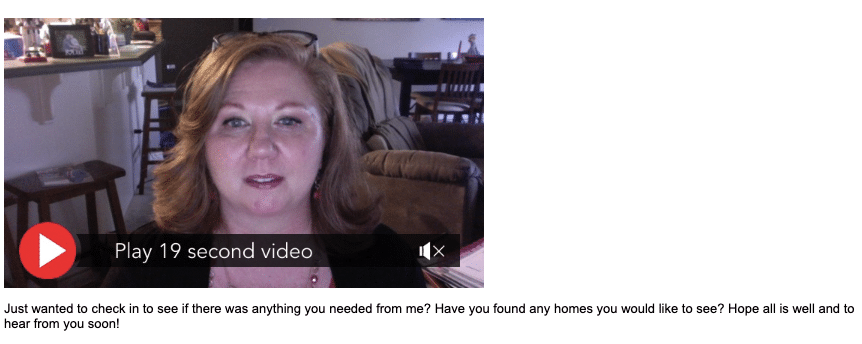
Many real estate platforms include email drip campaigns and a way to create your own. I used many of the emails already included in my CRM and simply customized them to my liking. I recommend getting to know your email marketing tools and mapping out how to use them for your marketing.
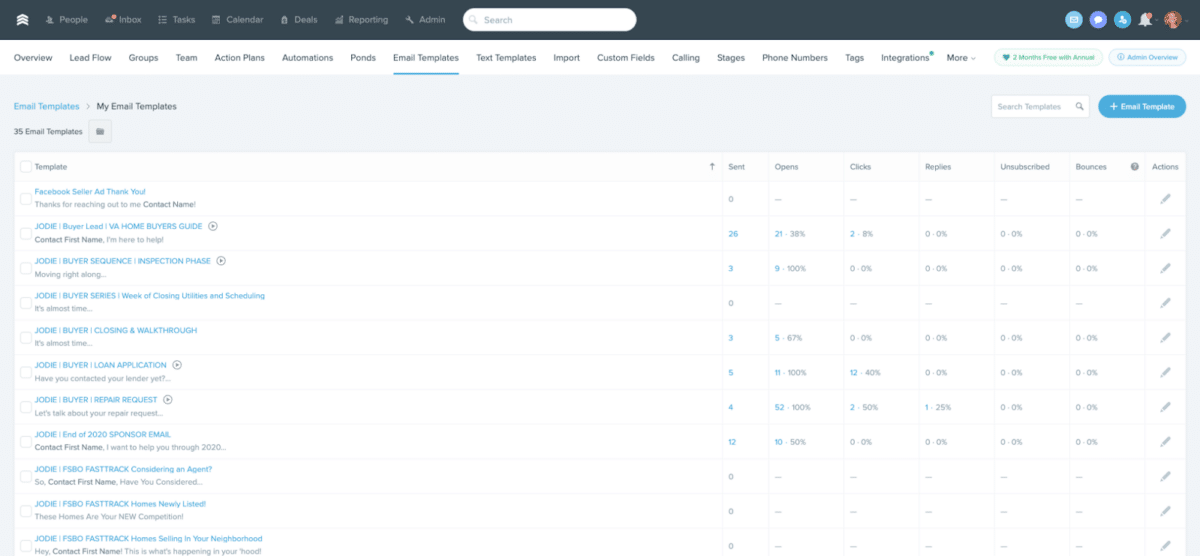
I may be a little biased, but Follow Up Boss is one of the best CRMs explicitly designed to help you run your real estate business. It features tons of preloaded templates you can customize to fit your personality and unique needs. It integrates with almost all other software, so no matter what tech stack you’re running, Follow Up Boss can enhance your marketing and lead nurturing efforts.
Promotional Campaigns
Next, let’s talk about a promotional drip campaign, real estate-style. These are one-off emails designed to generate buzz and drive action around a specific event or offering. I sent these out for my open houses or brokerage events.
Some examples:
- New listing alerts: When a hot new property hits the market, send a targeted email to your segmented list of buyers who might be interested.
- Open house invitations: Promote your upcoming open houses with an email with all the essential details, a sneak peek of the property, and a clear call to action to RSVP. Check out some of the fantastic templates in Canva!
- Special offers: Whether it’s complimentary home staging for sellers, vendor discounts, or an exclusive VIP client event just for your email subscribers, promotional emails can help drive conversions and reward your loyal followers.
- Client appreciation events: When your brokerage hosts an experiential marketing event, such as a holiday party, happy hour, or outdoor picnic for the family, invite past and present clients to show their appreciation and generate referral business.
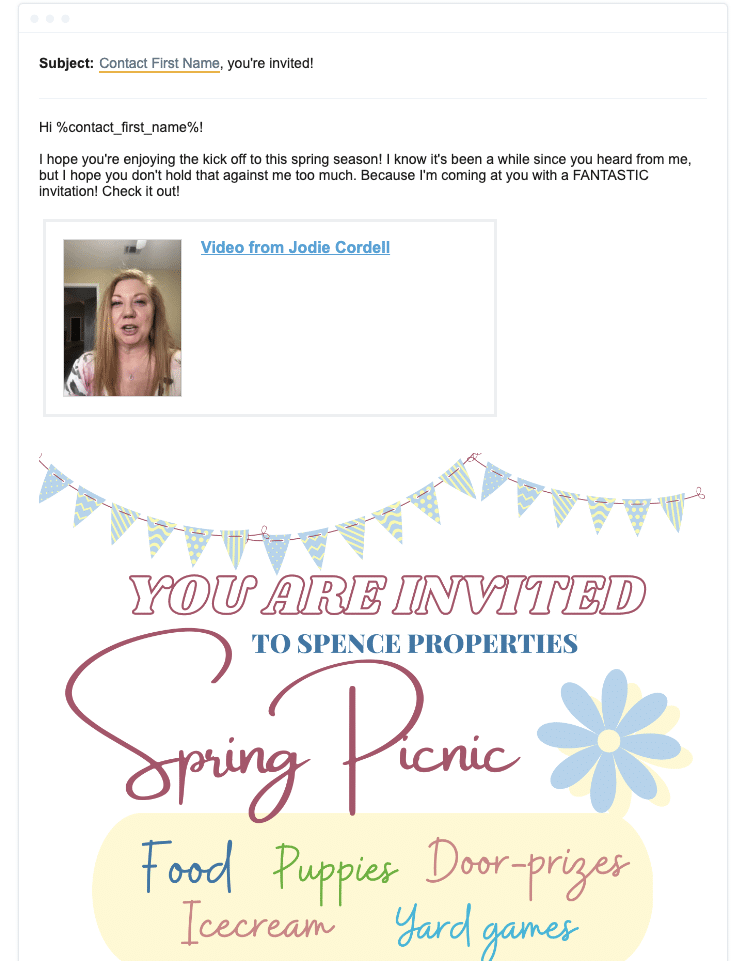
Seasonal Campaigns
Seasonal and holiday-themed campaigns are another great way to engage your subscribers and showcase your personality. From “Treat yourself to a new home this Halloween” to “Fall in love with these cozy winter listings,” there are endless opportunities to get creative with holiday email marketing ideas throughout the year.
Referral Campaigns
Referral and testimonial campaigns are also powerful ways to leverage social proof and grow your business. Encourage your satisfied clients to refer their friends and family. And remember to showcase your glowing testimonials and success stories in your emails to build trust and credibility with your subscribers.
Ask your clients to give video testimonials so you can include them in your nurture campaigns. When your leads see testimonials, especially video testimonials, directly from your clients, they will convert faster and easier.
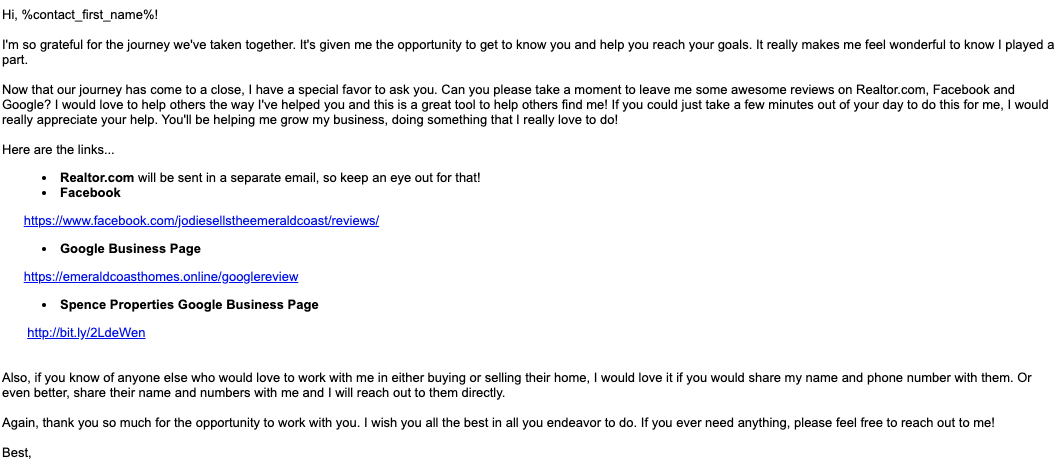
I like to do these at closing—simply ask if they mind giving a brief testimonial on video on the day of closing for your marketing. I give my clients a heads-up so they’re prepared the day before. When you catch your clients at their most excited, you’ll get a much better, more glowing testimonial video from them. And you don’t need anything fancy—I always use my phone on a small tripod.
Re-engagement Campaigns
Finally, don’t neglect your inactive subscribers. Re-engagement campaigns can help you win back those who opened your emails a while ago and keep your list healthy and engaged. Try sending an “I miss you” email with a special offer (like a free moving truck, boxes for packing, or a home warranty on you) or a survey to get feedback on how to serve their needs better.

You can create a series of periodic emails to try to re-engage your cold leads. They may reply to one of your emails if they are still in the market. If they’ve moved on, they will unsubscribe. If they’re no longer a good lead, you want them to unsubscribe because that keeps your list clean.
Automated Action Plans
In addition to welcome sequences and drip campaigns, use behavioral triggers and event-based emails to deliver targeted messages based on your readers’ actions. For example, if someone clicks on a specific listing in your newsletter, you could automatically trigger a follow-up email with more details about that property and an invitation to schedule a showing.

I used a lot of prospecting strategies that generated different types of leads at various times. But I loved using lead magnets to generate most of my leads. When a lead found one of my lead magnets, usually attached to a video, and downloaded it, I would capture their name and email address. When the lead entered their information in the capture form, it went straight into my CRM, where an action plan for a welcome sequence to connect was triggered automatically.
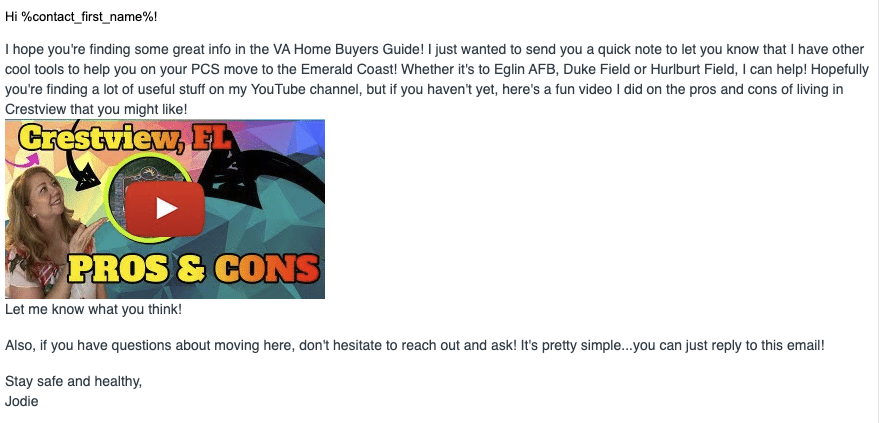
Look for the action plans section in your email marketing platform to set up automation. Set up your action plans to go out every few days initially, then taper off to once per month after that. If your platform includes SMS messaging, like Follow Up Boss, you can also include text messages in your drip campaigns. I included several text messages, some with video, in my drip campaigns.
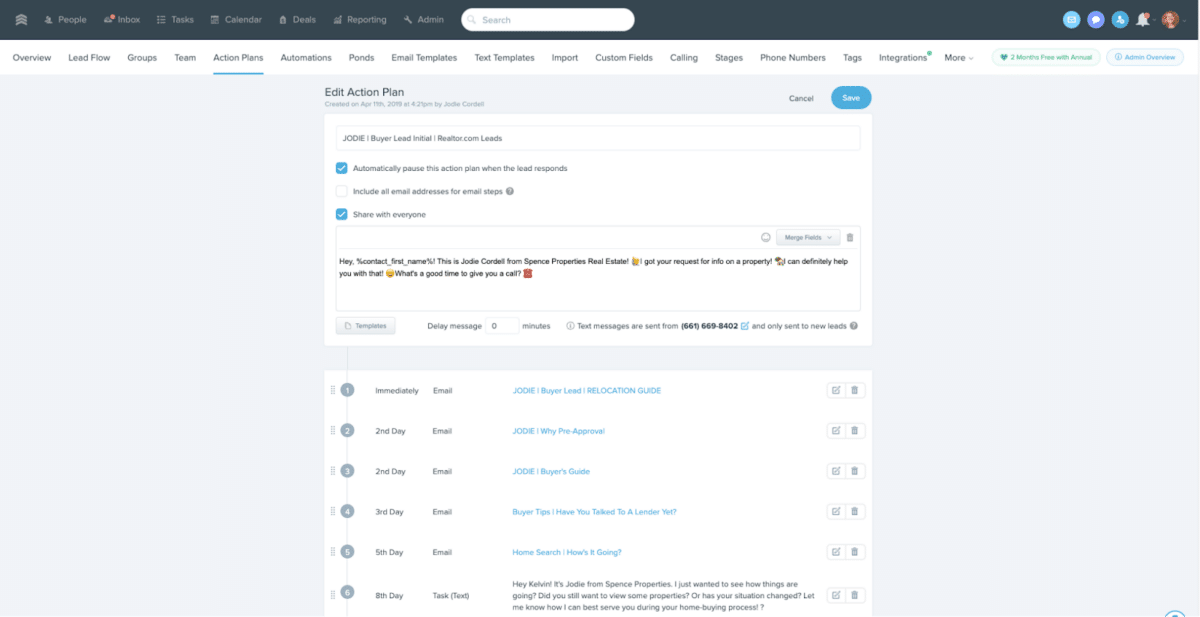
How to Laser Focus Your Drip Campaigns
Real estate email drip campaigns are a powerful tool in your marketing arsenal. Learn to use them correctly to crank up the impact of your marketing message. Here are a few best practices to make sure your drip campaigns hit their mark.
Write Compelling Subject Lines
The subject line is the most important element in creating your drip campaigns. You should spend a substantial amount of time testing and tweaking your subject lines to get them right. Studies show that 47% of email recipients decide whether to open an email based on the subject line alone. So if your subject line doesn’t resonate with the reader, the rest of your carefully crafted email might as well be invisible. Don’t be afraid to change your subject line for one of your emails if it’s underperforming.
Include a Call to Action
All of your emails should deliver value for the reader, but don’t be afraid to ask for something in return. It doesn’t have to be pushy. Simply let your subscribers know you’re there to assist them. Ask them to let you know if they want to schedule a showing or get a home valuation. Always remind them that you’re the agent they need and ask them to act on something. You can even ask them to visit your website for more information. Get them to interact with you and your content to move the engagement forward.
Monitor Your Performance Metrics
Keep track of how well your campaigns and the individual emails within them perform. Which ones are opened regularly versus the ones that aren’t? Keep an eye out for underperforming emails and tweak them when needed. If you have emails that aren’t opened, play around with the subject line. Try some A/B testing of different subject lines to see what works best.

Frequency: Don’t Send Too Many Emails
When it comes to email marketing, many marketers overdo it. When any person gets so many emails from the same sender, one of two things will happen (and sometimes both). First, they will become immune to your emails and stop opening them. Second, if they get tired of the emails clogging up their inbox, they’ll unsubscribe from your list.
Think of your shiny new lead as a first date. You want to take it slow and don’t overwhelm them with all of the things. Take your time and always leave them wanting more. Send one text and email at the beginning because you want them to know you’re excited they found you. Then, just like a follow-up phone call after the first date, you want to wait three days to send another email and perhaps an accompanying text message. After that, you might want to wait a week to 10 days. Then, there will be two weeks for the next communication until you get to just once per month.
You don’t want to look desperate or pushy. You want to show them your knowledge and expertise and let them get to know you. But then, you want to give them enough space to breathe. Stay in their orbit just enough so that you’re still fresh in their mind when they’re finally ready to make a buying decision. It’s a balancing act, but it works like magic if you do it well.
Time Your Real Estate Drip Emails Perfectly
We just talked about the frequency of your drip emails. Now, I need to mention the timing. Studies show that Tuesdays, Wednesdays, and Thursdays are the best days to send emails, as people are likelier to open them. Mondays are too hectic after the weekend. On Fridays, people are half-checked out and already thinking about the fun stuff after work. The middle of the week is your sweet spot.
Also, lunchtime seems to be the prime time to grab your readers’ attention. The middle of the day consistently shows a higher open rate. So, if people check their emails during lunch, they may feel more relaxed about opening your email and have time to read it than when they’re working and probably feeling more pressure. Try Sunday evenings if you need to send emails at a different time. People are mentally gearing up for work but are still more relaxed at home.
Segment & Personalize Your Sends
Most email marketing platforms allow you to divide your database into different segments or groups. Real estate drip emails work so well because you can send the right message at the right time to the right person. Segmentation allows you to send your message to only the people who need it, allowing you to build stronger relationships, convert more leads into clients, and ultimately close more deals.
For example: If you have a list of new leads, you can put them into one segment and send out your drip emails about getting a pre-approval before viewing homes without sending that message out to your entire list. If your email is relevant to the recipient, it will likely be opened.
Use your merge fields to personalize every single real estate drip email that goes out. No one likes to get impersonal emails that look like a blast. Make your emails speak to the person individually by using their name. It’s easy to set these up in your automations with merge fields. Merge fields auto-populate based on the specific merge field you choose when you set up your emails. Ex: (%contact_first_name%)

Follow these best practices and keep your list clean, and your email marketing efforts will deliver clients consistently and easily.
Stay Compliant
To get the most out of your real estate drip campaigns, it’s essential to stick to best practices and legal requirements. Keep these key points in mind:
- Optimize for mobile and accessibility: With more people accessing emails on their smartphones, it’s crucial to use mobile-friendly templates that adapt to any size screen. Your messages will look professional and be easy to read on any device.
- Comply with anti-spam regulations: Ensure you follow laws like CAN-SPAM and GDPR, which set guidelines for email marketing. Provide accurate sender information, clear unsubscribe options, and promptly process opt-out requests.
- Maintain list hygiene and unsubscribes: Keep your list free of inactive subscribers and those who have opted out. This will help maintain a high-quality list and improve your deliverability rates.
- Avoid common mistakes: Don’t use misleading subject lines, send emails without permission, add too many images, and fail to provide value to your subscribers.
By prioritizing compliance and best practices, you can build trust with your database, avoid legal issues, and achieve better email marketing results. Always put your readers’ preferences and experiences first to maintain a positive sender reputation and maximize the impact of your campaigns.
FAQs
How long ahould a drip campaign be?
The research has shown seven to 10 touchpoints are the sweet spot for converting leads. Specifically, eight is the magic number. Most email drip campaigns for long-term nurturing should last about a year. You can set up between eight and 12 emails for a long-term campaign. You’ll want to hit them every few days initially, but then taper off to about one per month.
I actually had an initial welcome sequence that was just a few emails and text messages (like four or five). After I completed that sequence, another action plan would start for the longer nurturing campaign, including four or five more emails and text messages. I made sure to touch base with those prospects at least eight times.
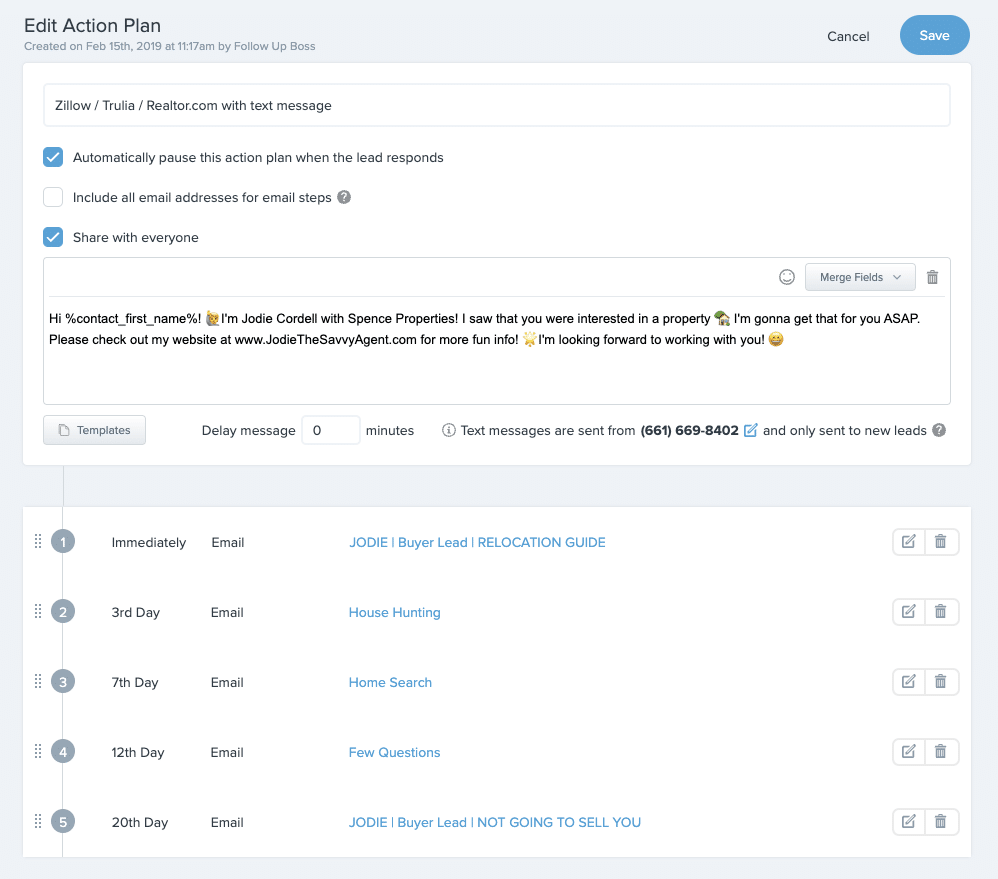
When should you send your emails?
The initial contact should be more frequent, like every couple of days over the first week. But after that, you should taper off your touches until you get them down to once per month for a year. And mix up the touches between email and text messages, if possible.
According to studies, Tuesdays at 11:00 a.m. seems to be the best time to send your emails. Wednesdays and Thursdays are also decent. If you plan the time your emails are delivered, you can schedule the specific time of 11:00 a.m., but you might consider 11:07 a.m. or another time that’s close to 11:00. The reason is if everyone knows 11:00 a.m. is the best time to send their emails, they will all send them at the same time. So, send your email a little later so you get all of the spotlight.
Bringing It All Together
If you’re not using drip campaigns to nurture your real estate leads, you’re missing out on a game-changing strategy. Drip campaigns in real estate are a powerful tool in email marketing, allowing you to connect with your leads, stay top-of-mind with your sphere of influence, and cultivate those valuable new leads you worked so hard to get. It’s like having a personal assistant that delivers tailored, timely messages to your contacts, building relationships and trust over time.
Are you using real estate drip campaigns in your email marketing strategy? Or have you been waiting for a complete guide to get started? Today is the perfect time to start your email marketing campaigns or perfect your existing strategy. Do you still have questions? What did I miss? Let me know in the comments.






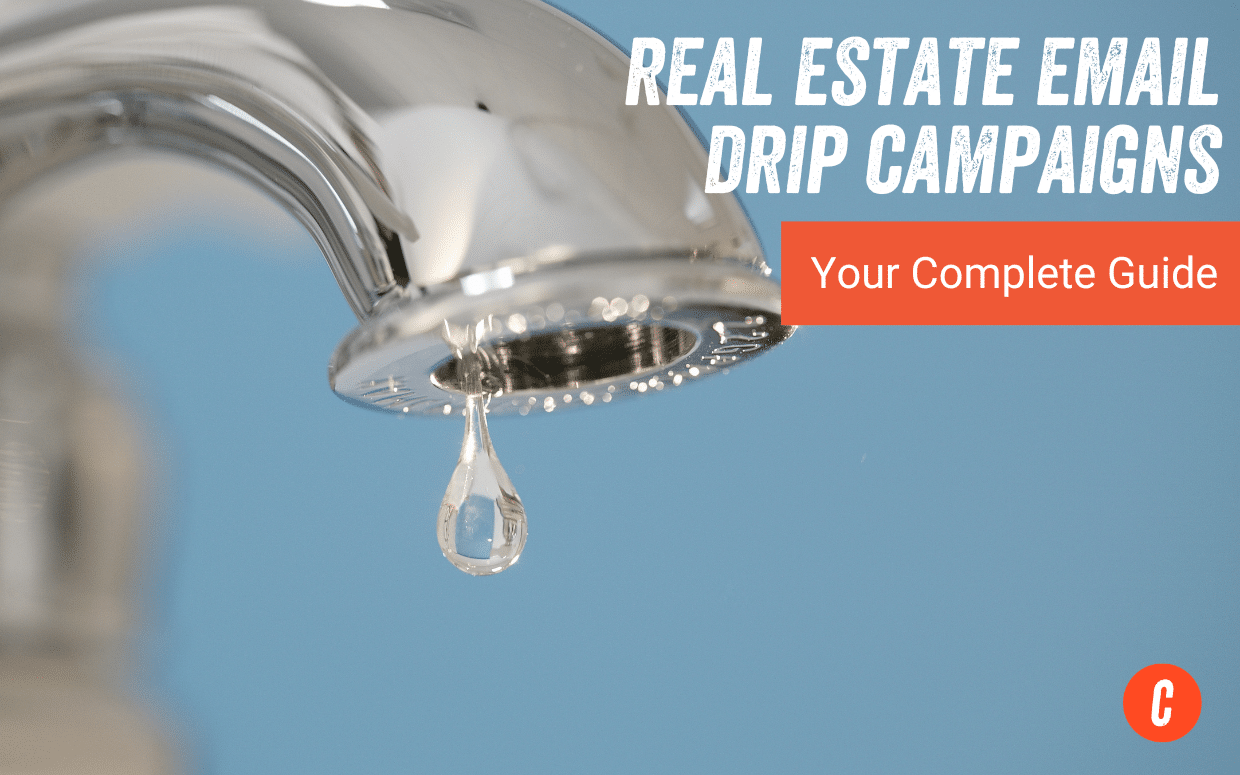


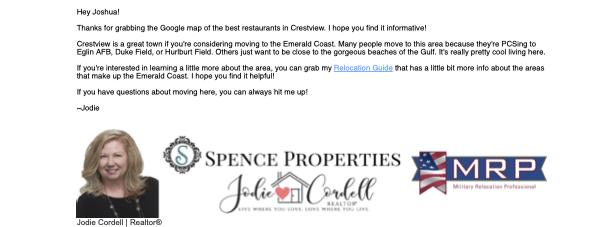
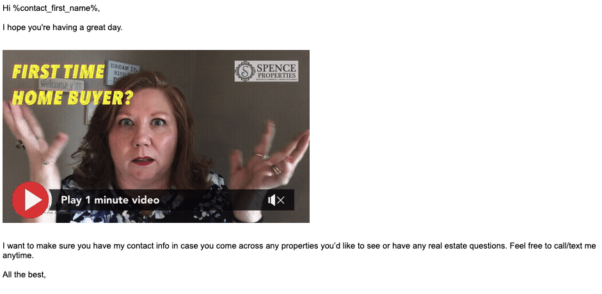
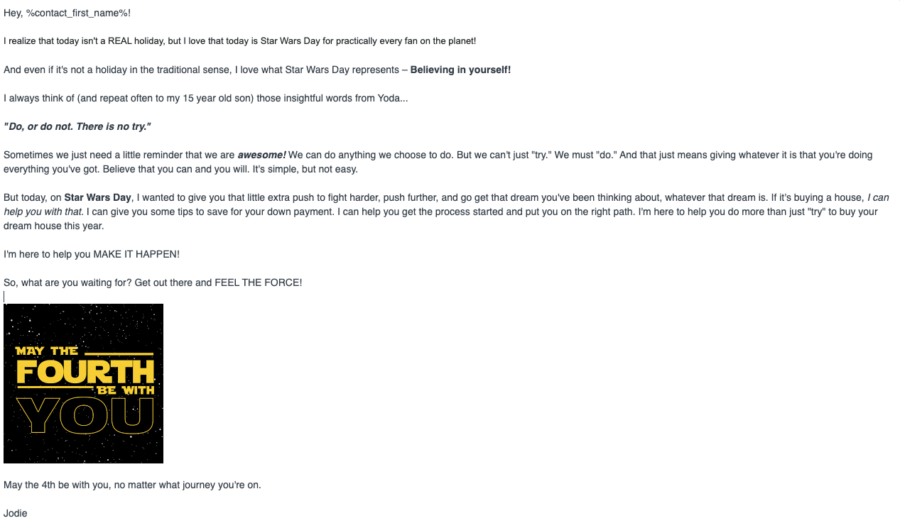
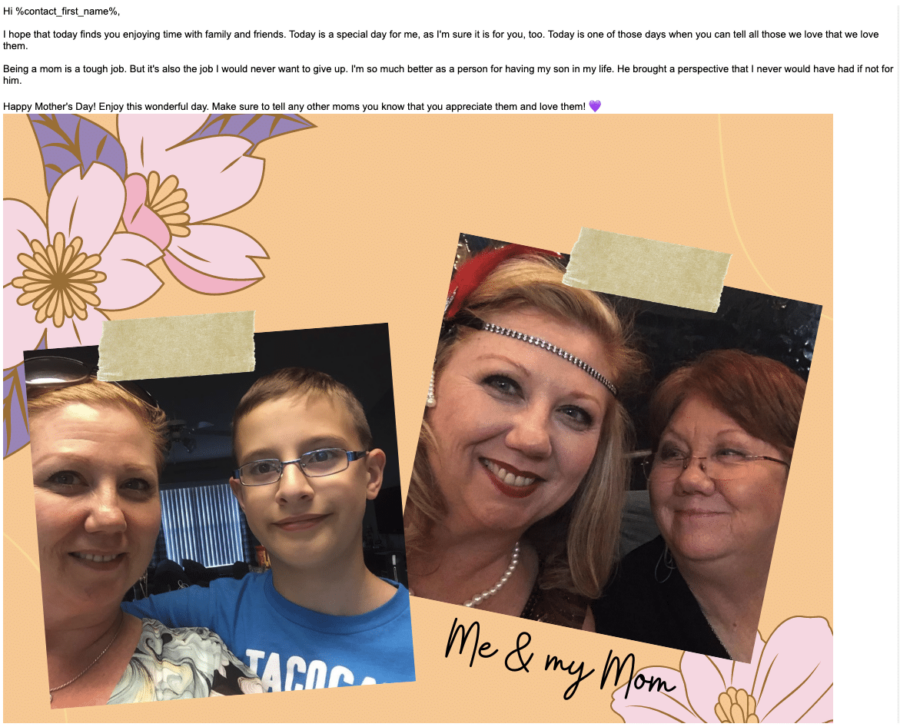
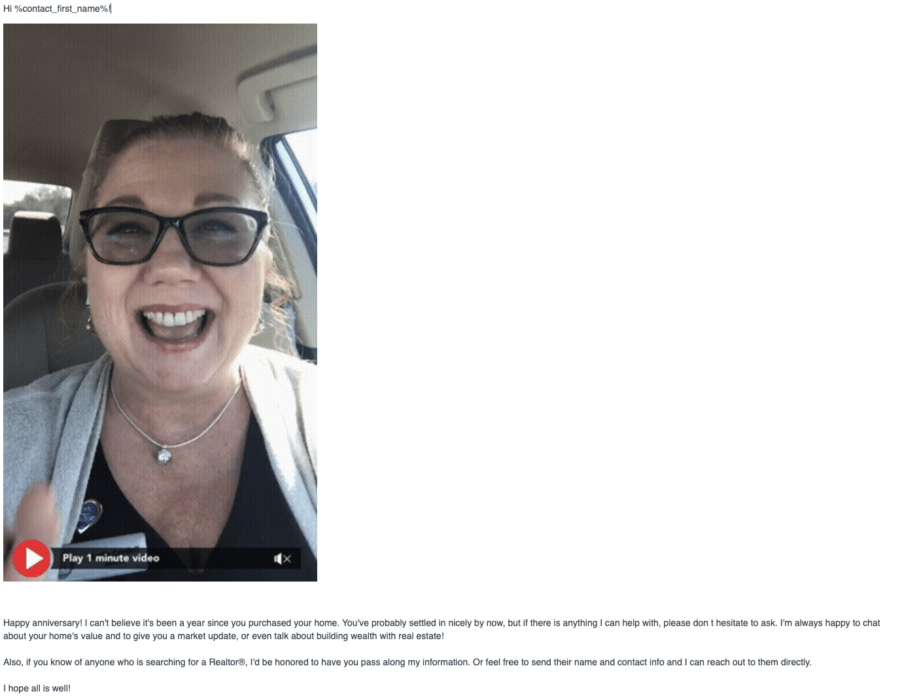
Add comment